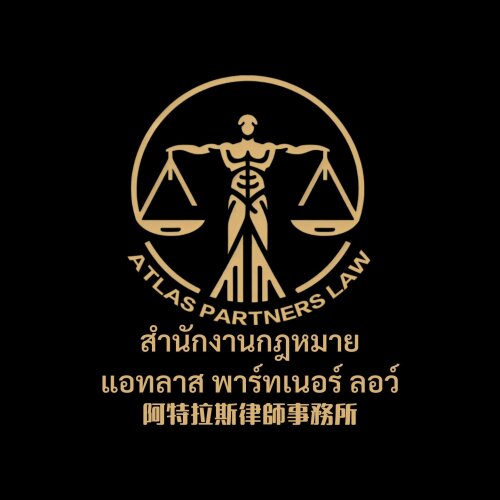About Acquisition / Leveraged Finance Law in Chiang Mai, Thailand
Acquisition and leveraged finance law involves the legal frameworks and practices that govern how businesses and investors secure funding to acquire companies or assets, often utilizing borrowed money to maximize potential returns. In Chiang Mai, Thailand’s growing business hub, these transactions are increasingly common as both local and foreign investors seek opportunities in sectors such as tourism, real estate, and manufacturing. Acquisition finance typically includes loans, credit facilities, and other financial instruments provided by banks or other lenders, while leveraged finance refers to the use of more substantial amounts of debt, often for acquisitions, buyouts, or business expansions. The intricacies of these transactions require careful navigation of Thai laws, banking regulations, and financing structures to ensure compliance and manage risk.
Why You May Need a Lawyer
Legal guidance is crucial for anyone entering into acquisition or leveraged finance deals in Chiang Mai. Some common scenarios where you may require a lawyer include:
- Structuring and negotiating the terms of acquisition loans or leveraged buyouts
- Ensuring compliance with Thai financial, company, and foreign investment laws
- Drafting and reviewing loan agreements, security documents, and guarantees
- Conducting legal due diligence on target businesses or assets
- Navigating cross border transactions involving foreign investors or lenders
- Resolving disputes between lenders, borrowers, or other stakeholders
A lawyer can help protect your interests, identify potential legal risks, and facilitate smooth and successful transactions.
Local Laws Overview
Thailand’s legal landscape is unique and has specific regulations that impact acquisition and leveraged finance, especially in Chiang Mai:
- The Civil and Commercial Code of Thailand governs general contract and security arrangements
- The Public Limited Companies Act regulates Thai company structures and mergers
- The Foreign Business Act restricts certain business activities for foreign investors, which can affect acquisition structures
- The Bankruptcy Act and Business Reorganization laws apply in cases of insolvency or restructuring
- Security interests, such as pledges and mortgages, have specific registration requirements
- The Bank of Thailand supervises financial institutions, setting guidelines for lending, interest rates, and loan classification
- Tax considerations, such as stamp duties and withholding tax on interest payments, are significant in transaction planning
Chiang Mai businesses must observe both national statutes and local administrative requirements, making it vital to seek legal input before proceeding.
Frequently Asked Questions
What is leveraged finance, and how does it differ from typical corporate finance?
Leveraged finance refers to the use of high levels of debt to finance acquisitions or business expansions, often secured against assets or cash flow. Unlike standard corporate finance, leveraged finance usually involves riskier loans with stricter terms and higher interest rates.
What types of security are commonly used in acquisition financing in Thailand?
Common security arrangements include mortgages over property, pledges over shares or assets, fixed and floating charges, and personal or corporate guarantees.
Are there any restrictions for foreign investors in acquisition or leveraged finance deals in Chiang Mai?
Yes, the Foreign Business Act restricts certain business activities for foreigners, and there are limitations on foreign ownership in some sectors. Careful structuring is needed to comply with these laws.
What are typical steps in an acquisition finance transaction?
Key stages include legal and financial due diligence, negotiation of sale and purchase terms, arranging finance, executing loan and security documents, and registration of security interests when required.
What are the key risks in leveraged finance in Thailand?
Risks include fluctuating interest rates, regulatory changes, enforceability of security, insolvency scenarios, and cross border legal complications.
How is the enforceability of security interests handled locally?
Security interests must be carefully structured and registered in accordance with Thai law to be enforceable, particularly for mortgages and certain types of pledges.
What are the main sources of acquisition finance in Chiang Mai?
Sources include local and international banks, finance companies, private equity funds, venture capital, and, for some large deals, capital markets or bond issuances.
Do lenders need to be licensed or registered to provide acquisition finance?
Lenders operating in Thailand typically need to be licensed financial institutions, though structures involving offshore lenders may be possible with additional compliance considerations.
Are there special considerations for cross border transactions?
Yes, issues such as foreign exchange controls, cross border security enforcement, and compliance with both Thai and foreign regulations must be addressed.
Can disputes arising from acquisition finance agreements be resolved through Thai courts or arbitration?
Yes, disputes can be brought before Thai courts, which have jurisdiction over contracts executed in Thailand, or resolved through arbitration if the contract includes an arbitration clause.
Additional Resources
If you are seeking guidance on acquisition or leveraged finance in Chiang Mai, consider consulting the following organizations:
- The Bank of Thailand - Regulates financial institutions and banking practices
- Department of Business Development (DBD) - Handles company registrations and business law information
- The Board of Investment (BOI) of Thailand - Promotes and facilitates foreign investment
- The Securities and Exchange Commission (SEC) - Oversees capital markets activity
- Thai Bar Association - Can assist in finding qualified legal professionals
- Chiang Mai Chamber of Commerce - Offers resources and connects businesses with local legal expertise
Next Steps
If you need legal assistance in acquisition or leveraged finance in Chiang Mai, start by outlining your transaction objectives and gathering all relevant financial and business documents. It is advisable to:
- Contact a reputable law firm or licensed attorney with expertise in acquisition and finance law
- Request an initial consultation to explain your goals and identify potential legal challenges
- Work with your lawyer to conduct legal due diligence, assess transaction risks, and structure your deal compliantly
- Stay informed about your obligations and timelines throughout the process
- Seek legal advice before signing any binding agreements or making financial commitments
Taking these steps can help you navigate the complexities of acquisition and leveraged finance transactions in Chiang Mai, minimizing risks and increasing the likelihood of a successful outcome.
Lawzana helps you find the best lawyers and law firms in Chiang Mai through a curated and pre-screened list of qualified legal professionals. Our platform offers rankings and detailed profiles of attorneys and law firms, allowing you to compare based on practice areas, including Acquisition / Leveraged Finance, experience, and client feedback.
Each profile includes a description of the firm's areas of practice, client reviews, team members and partners, year of establishment, spoken languages, office locations, contact information, social media presence, and any published articles or resources. Most firms on our platform speak English and are experienced in both local and international legal matters.
Get a quote from top-rated law firms in Chiang Mai, Thailand — quickly, securely, and without unnecessary hassle.
Disclaimer:
The information provided on this page is for general informational purposes only and does not constitute legal advice. While we strive to ensure the accuracy and relevance of the content, legal information may change over time, and interpretations of the law can vary. You should always consult with a qualified legal professional for advice specific to your situation.
We disclaim all liability for actions taken or not taken based on the content of this page. If you believe any information is incorrect or outdated, please contact us, and we will review and update it where appropriate.















